Holter Monitoring Test in Nagpur

Holter monitoring measures your heart activity over an extended period, usually between 24 and 48 hours. Basically, a Holter Monitoring is a portable device which records the heart’s electrical signals. This monitoring device is attached to the patient’s chest using the electrode and after wearing it they are instructed to go about their daily activities. This Holter monitoring is helpful in diagnosing heart rhythm irregularities, evaluating the effectiveness of medications, and assessing symptoms such as palpitations or dizziness that may be related to heart conditions.
Why is Holter Monitoring Done?
Holter monitoring is done to evaluate and diagnose various heart conditions. It helps for detecting irregular heart rhythms (arrhythmias) that may not be identified during a short-term electrocardiogram(ECG). The Holter Heart Monitor test is also useful in assessing the effectiveness of medications or treatments for heart conditions. It helps doctors identify the cause of symptoms like palpitations, dizziness, or fainting. To continuously monitor the heart’s electrical activity over an extended period, Holter Monitoring Test in Nagpur provides the valuable data for accurate diagnosis and treatment planning.
How Holter Monitoring Works?
Holter monitoring works by using a portable device called a Holter monitor, that is attached to the patient’s chest with electrodes. And the Holter Monitor procedure, records the heart’s electrical signals continuously for 24 to 48 hours while the patient goes about their normal activities. The recorded data is then analyzed by healthcare professionals to evaluate the heart’s activity and identify any irregularities.
What are the risks involved in the Holter Monitoring Test?
Holter for heart is a safe procedure with minimal risks. However, potential risks include skin irritation or allergic reactions to the electrodes, discomfort or difficulty during sleep or physical activities due to the device, and a small risk of infection or injury when attaching or removing the electrodes.
How do you prepare for the Holter Monitoring Test?
No worry, to prepare for the Holter test for heart in Nagpur, before going few things to keep it on your mind. Doctors usually advise taking a shower before the test procedure to ensure clean skin. And apart from this patients are also instructed to avoid applying the lotions, oils, or creams on the chest area. They should also wear comfortable clothing that allows easy access to the chest for electrode placement.
What conditions can a Holter Monitoring find?
A Cardiac Holter monitor Test in Nagpur can help to detect the wide range of conditions, including arrhythmias (such as atrial fibrillation, ventricular tachycardia), heart rhythm abnormalities, heart block, bradycardia, palpitations, fainting spells, and symptoms related to cardiac ischemia. It also provides valuable data for diagnosing and managing various heart-related disorders.
Types of Holter Monitoring
Holter monitoring comes in different variations tailored to specific monitoring needs:
Continuous Holter Monitoring
This type involves continuous recording of the heart’s electrical activity over a specific duration, typically 24 to 48 hours.
Event Recorder
Similar to a Holter monitor, an event recorder is used for longer-term monitoring but differs in its recording mechanism.
Loop Recorder
A loop recorder is a type of event recorder that continuously records and erases data in a loop.
What happens after a Holter Monitoring?
After the Holter monitoring period is complete, the patient returns the device to the healthcare provider. The recorded data is then analyzed by professionals who interpret the findings. They may identify any irregularities, heart rhythm abnormalities, or other relevant information, and provide a detailed report to the patient’s healthcare team for further evaluation and treatment planning.
Our Medical Services

ECG
An electrocardiogram (ECG) is one of the only and speediest tests utilized to survey the heart. Anodes (small, plastic patches that stick to the skin) are set at certain spots on the chest, arms, and legs.
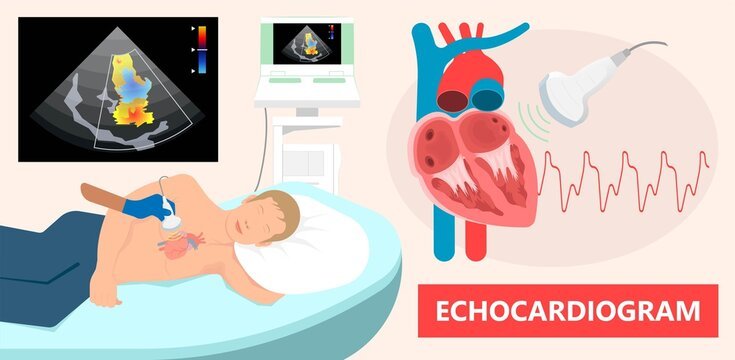
2D Echo
A two-dimensional Echocardiogram or 2D Echo test is a demonstrative test that employs ultrasound waves to evaluate the working of the heart.

Best Cardiologist in Nagpur
Introducing Dr. Chetan Rathi, a distinguished Cardiologist in Nagpur, whose eminence transcends the realm of medical proficiency.

BP Monitoring
Each time your heart beats, it pumps blood into your arteries. A blood pressure measurement may be a test that measures the force (pressure) in your arteries as your heart pumps.

Coronary Angiography
Coronary angiography diagnoses and evaluates coronary artery blockages. Contrast dye is injected into arteries, enabling X-ray imaging to visualize blood flow and identify narrowing or blockages.
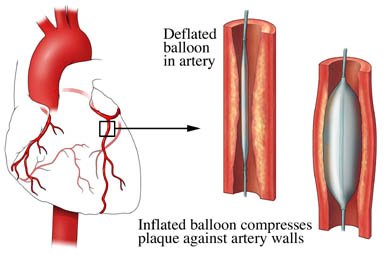
Coronary Angioplasty
Coronary angioplasty is a minimally invasive technique of abdominal artery angioplasty, which is used to treat coronary arteries that are obstructed or constricted and it is the most appropriate technique used by doctors for the treatment.
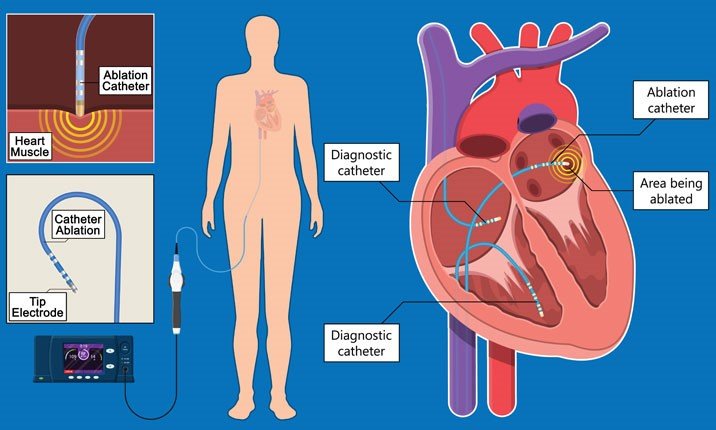
Electrophysiology Study
An Electrophysiology Study (EP study) is a test utilized to assess the heart’s electrical framework and check for abnormal heart rhythms. The natural electrical impulses coordinate the contractions of different parts of the heart.
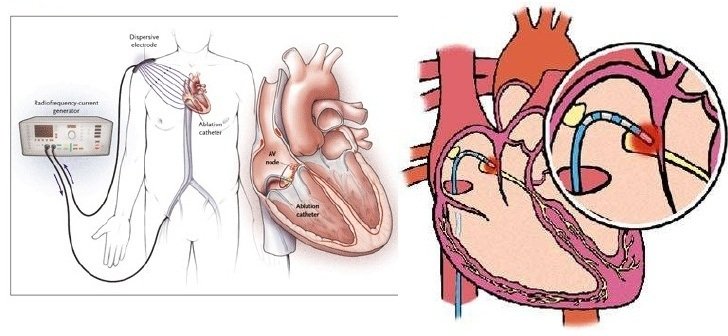
Radiofrequency Ablation
Radiofrequency Ablation (RFA) is a minimally invasive medical procedure that uses high-frequency electrical currents to generate heat, effectively destroying abnormal tissue or cells.
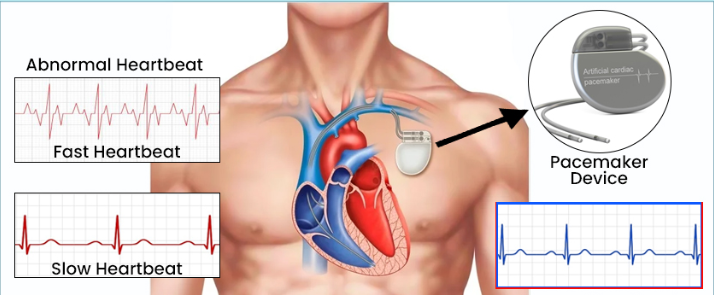
Pacemaker Implantation
Pacemakers are medical devices designed to support and regulate the electrical system of the heart, ensuring it functions properly. This medical procedure entails the insertion of a small device into the chest region.

ICD Implantation
An Implantable Cardioverter-Defibrillator (ICD) is a life-saving device that plays a crucial role in monitoring and regulating heart rhythms. It consists of a pulse generator and leads implanted in the heart.

CRT_P & CRT-D Implantation
CRT implantation is a process in which technological instruments known as CRT-P and CRT-D where p stands for pacemaker and d stands for defibrillator.

Valvuloplasty
A balloon mitral valvuloplasty is a process to extend a restricted heart valve and improve blood flow. The heart valves handle how blood drives through the heart.
Our Achievements in Numbers
Happy Patients
Years of experience
Specialisations
Hospital Associations
Awards & Recognition
Patient Testimonials
Dr Chetan Rathi sir is good cardiologist. I visited him many times with my family and friends for consult about issues related with cardiology.
Our Videos




Our Blog
 How Does Vitamin D Affect Your Heart?
How Does Vitamin D Affect Your Heart?
Vitamin D is much more than the “sunshine vitamin”; it is very important in the whole body of heart health. It works from bone health to an enhanced immunity function. Scientific studies show that this regulates cardiovascular health; therefore, it is a very great factor in preventing heart diseases and maintaining optimal heart function. This… Continue reading How Does Vitamin D Affect Your Heart?
Read More Understanding Diabetes: Causes, Symptoms, and Management
Understanding Diabetes: Causes, Symptoms, and Management
Diabetes mellitus is a chronic condition that affects the way your body processes glucose, or sugar. Unchecked, diabetes mellitus can lead to serious complications, such as heart disease and kidney damage, as well as nerve problems. Understanding the types of diabetes, the symptoms of diabetes, the causes of diabetes, and how to take care of… Continue reading Understanding Diabetes: Causes, Symptoms, and Management
Read More What Is Syncope and How Can It Be Prevented and Treated?
What Is Syncope and How Can It Be Prevented and Treated?
Syncope, also known as fainting, is a short-lived loss of consciousness which primarily results from a sudden decrease in blood flow to the brain. Although fainting can be alarming, syncope is generally not a serious condition and can be caused by a variety of reasons; however, it may indicate an underlying serious medical condition in… Continue reading What Is Syncope and How Can It Be Prevented and Treated?
Read More



